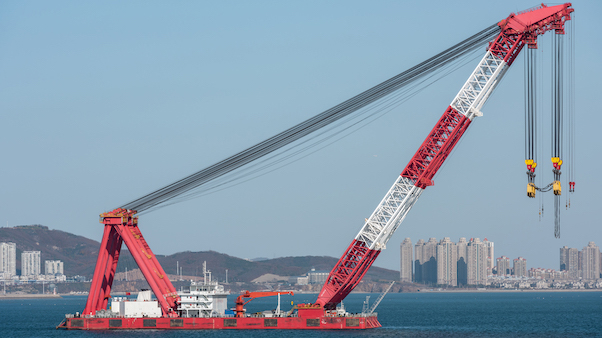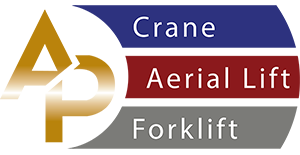


Floating Cranes: An In-Depth Look at Their Use and Training
Floating cranes have played a crucial role in the maritime industry for decades. These massive machines are vital to the loading and unloading of cargo, as well as the construction and maintenance of offshore structures. With their immense lifting capabilities and mobility, floating cranes are an essential tool for any marine operation. In this blog post, we will dive into the world of floating cranes, their uses, and the training required to operate them safely and effectively.
A floating crane is a type of crane that is used on water rather than on land. They are typically mounted on barges or pontoons and can be moved from place to place on water. Floating cranes are capable of lifting incredibly heavy loads, often exceeding hundreds of tons. They are also highly maneuverable, making them ideal for handling cargo in tight spaces or in the midst of a bustling port.
Floating cranes are used in a variety of ways in the maritime industry. One of the most common uses of floating cranes is for loading and unloading cargo from ships. When a ship arrives at port, the floating crane is used to lift containers and other cargo from the ship and transport them to the dock or another vessel.
In addition to cargo handling, floating cranes are also used in the construction and maintenance of offshore structures, such as oil rigs or wind turbines. They are ideal for these types of projects because they can be positioned near the work site, and their mobility allows for easy movement around the structure. This is essential when working in the open sea, where conditions can change rapidly.
Operating a floating crane is a highly specialized skill that requires extensive training and experience. Due to the size and complexity of these machines, it is essential that operators have a thorough understanding of how they work and how to use them safely and effectively.
The first step toward becoming a floating crane operator is to complete a training program. These programs typically include both classroom instruction and hands-on training. Classroom instruction covers topics such as safety procedures, crane operation, and maintenance. Hands-on instruction entails operating the crane under the supervision of a competent teacher.
Once the operator has finished the training program, they must receive a license to operate a floating crane. This license is issued by the relevant regulatory authority and requires passing a written exam, as well as a practical test of the operator's skills. The license must be renewed periodically, and operators are required to undergo additional training to maintain their skills and knowledge of the latest safety procedures and regulations.
The safe operation of a floating crane is paramount to the wellbeing of the operator and those around them. Because of the huge size and weight of these devices, even minor mistakes might have disastrous repercussions. Operators must be vigilant at all times and follow a set of strict safety procedures to ensure that accidents do not occur.
One of the most significant safety considerations for floating cranes is weather. Operators must constantly monitor weather conditions and be prepared to stop operations if conditions become too hazardous. They must also be careful when operating in high seas, as the movement of the barge can cause the crane to sway, making it difficult to control.
Another critical safety consideration is the weight and balance of the load. Operators must be careful not to exceed the crane's weight capacity, and they must be aware of the load's center of gravity to ensure that it remains stable while lifting.
Finally, floating crane operators must be well-versed in emergency protocols in the event of an accident. They must know how to safely evacuate the crane and how to report the incident to the appropriate authorities.
If you want to learn how to become a crane operator, you'll need to first learn the necessary skills and knowledge.
Floating cranes are an essential tool in the maritime industry, providing vital services such as cargo handling and offshore construction. However, their operation requires extensive training and experience to operate safely and efficiently.
If you are interested in becoming a floating crane operator, it is crucial to find a reputable training program and obtain the necessary licenses and certifications. With the proper training and experience, you can enjoy a rewarding career in the maritime industry, operating one of the most impressive machines on the water.
Consider contacting our mobile crane training centers, or industry associations that offer comprehensive courses to get the essential skills and certifications for operating mobile cranes safely and efficiently if you are seeking for mobile crane training.
Thank you for reading my blog post about floating cranes and floating crane training. We hope you found it educational and useful. If you have any queries, please leave them in the comments section below.
If you require floating crane training, please do not hesitate to contact us. Our skilled instructors provide comprehensive training programs that will provide your personnel with all of the knowledge and skills they need to operate a floating crane safely and efficiently. We can provide tailored solutions to match your specific needs, whether you need to teach a few operators or an entire team.
Our training programs are in accordance with all OSHA standards and industry best practices, so you can be confident that your employees will receive high-quality instruction. Call us at (888) 501-1355 if you want to learn more about our floating crane training. Our experts will gladly answer any questions you may have and assist you in scheduling the training program that best suits your needs.

An All Purpose Safety Training Solutions Company